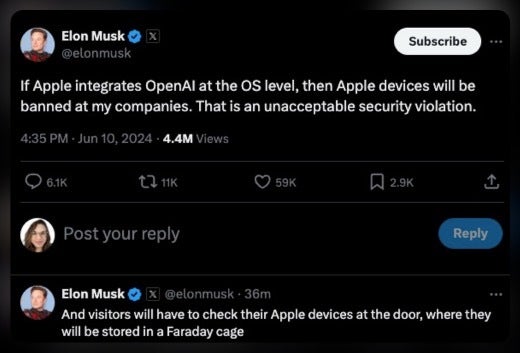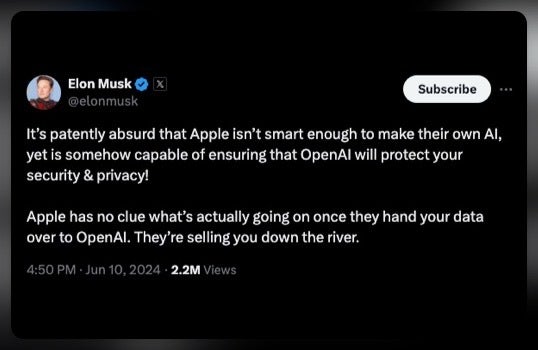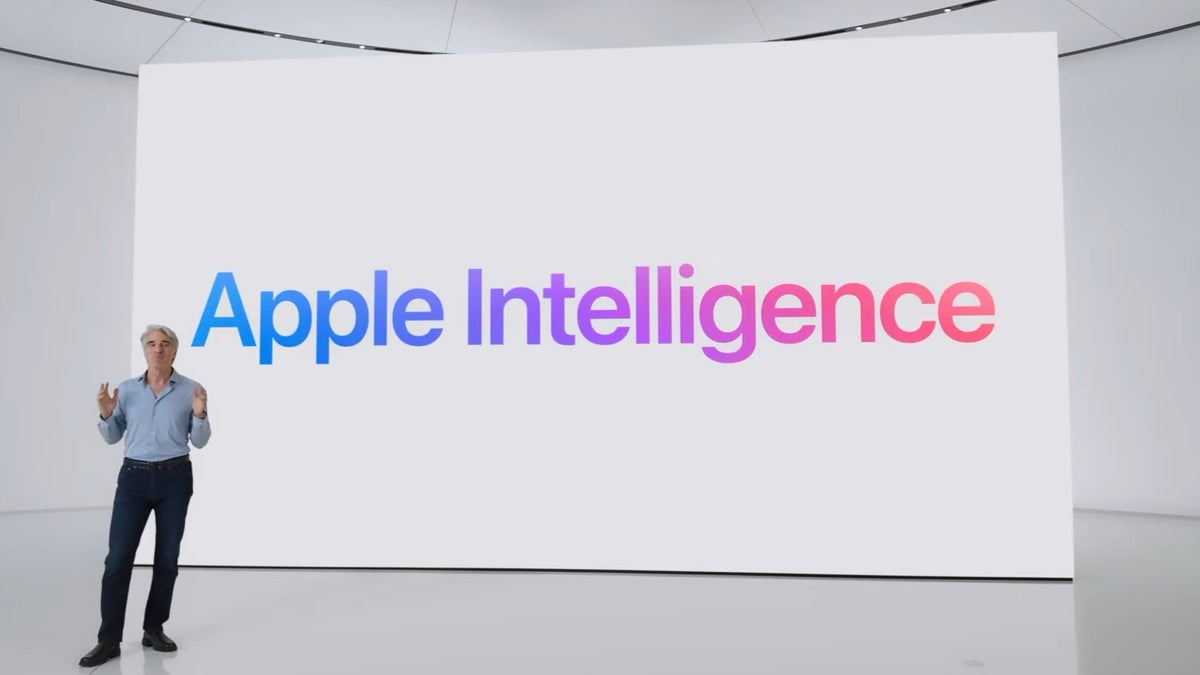
He then proceeded to criticize Apple’s choice of going with OpenAI for Apple Intelligence and expressed his disappointment at Apple not having developed their own AI. Furthermore, he expressed doubts at Apple’s ability to protect its users’ security and privacy from OpenAI.


Musk’s strong reaction could be attributed, in part, to his role as the head of xAI, a direct competitor to OpenAI. This competitive landscape adds another layer of complexity to the situation, raising questions about potential biases and conflicts of interest.Despite these concerns, it’s important to note that Apple has designed the ChatGPT integration with user choice in mind. Users are not forced to use these features and must explicitly grant permission for their activation. Additionally, the functionality mirrors that of the standalone ChatGPT app, offering similar features but with enhanced convenience within the iOS ecosystem.
Apple has also indicated that this is just the beginning of its AI journey, with plans to incorporate other third-party AI providers in the future. This could lead to a more diverse and dynamic AI experience for iOS users. For enterprise users, Apple’s emphasis on privacy and security suggests that standard device management controls will likely offer the ability to restrict ChatGPT and Apple Intelligence features. This would address potential concerns related to data security and compliance in professional settings.
It is unclear if Musk is fully aware of what the AI integration in Apple Intelligence entails and whether he understands the technical implications when it comes to security and ethics. However, while this debate continues, it’s not surprising that reactions such as these will continue and that Apple’s handling of this data will be looked at under a microscope.
